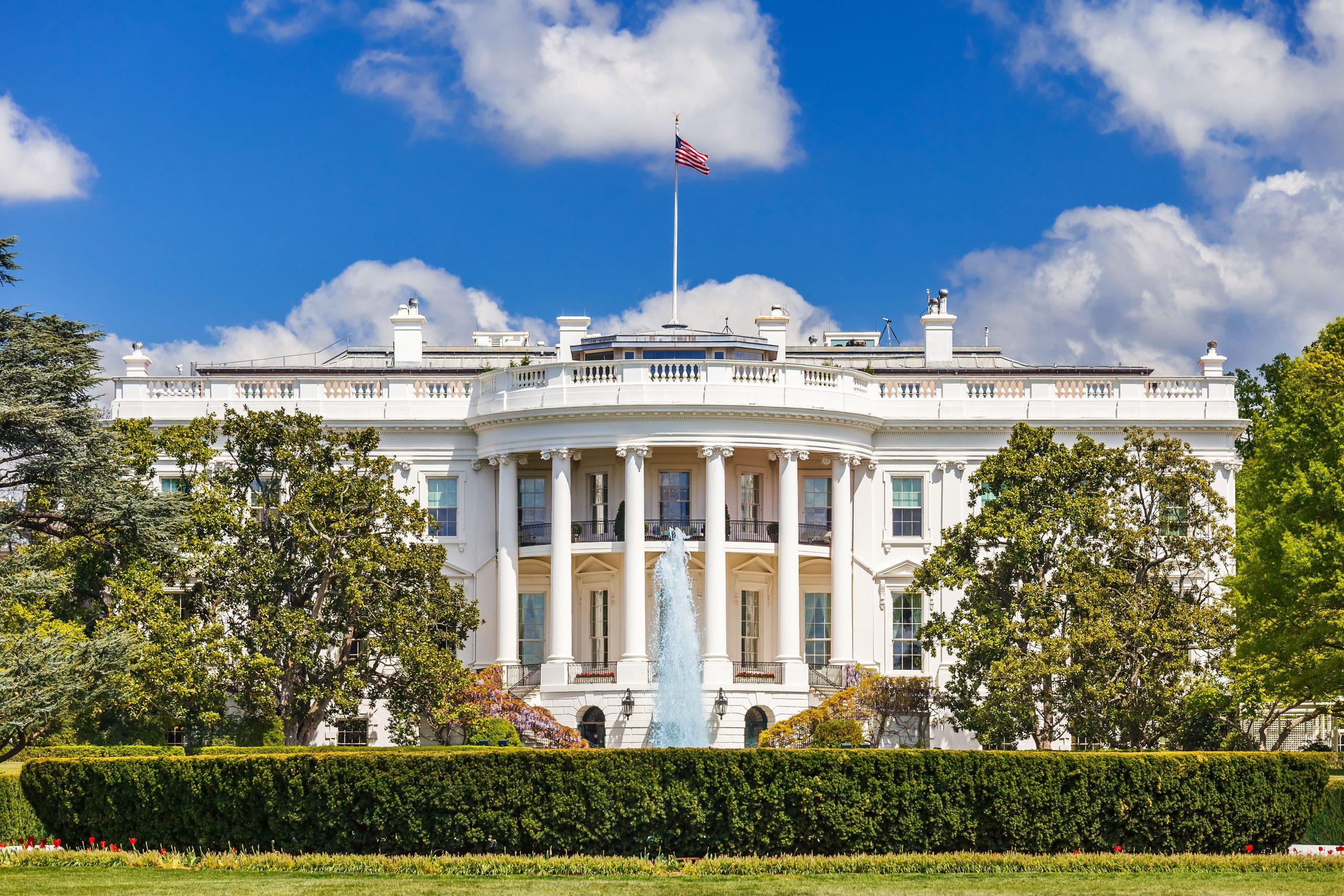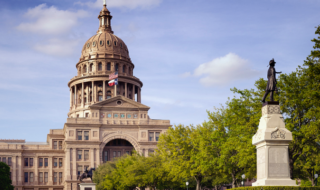2025 tax legislation included various victories that NFIB tirelessly advocated for on behalf of America’s small businesses.

Our Victories
Policy Victories
Taxes
20% Small Business Tax Deduction (Section 199A)

This bill permanently extends the 20% Small Business Deduction
 Allows pass-through entities to deduct up to 20% of their qualified business income
Allows pass-through entities to deduct up to 20% of their qualified business income
 Without Congressional action, this provision would have expired at the end of the calendar year.
Without Congressional action, this provision would have expired at the end of the calendar year.
 Permanency of the small business deduction allows small businesses to grow, hire, and invest in their workforce.
Permanency of the small business deduction allows small businesses to grow, hire, and invest in their workforce.
Marginal (Individual) Rates

This bill permanently extends the current federal marginal rates, which were scheduled to expire and increase at the end of the year.
 Current federal marginal rates are: 10%, 12%, 22%, 24%, 32%, 35%, 37%
Current federal marginal rates are: 10%, 12%, 22%, 24%, 32%, 35%, 37%
 If allowed to expire, they would have increased to: 10%, 15%, 25%, 28%, 33%, 35%, 39.6%.
If allowed to expire, they would have increased to: 10%, 15%, 25%, 28%, 33%, 35%, 39.6%.
 By permanently extending the lower marginal rates enacted in 2017 Congress is preventing a tax increase on about 33 million pass-through businesses subject to marginal rate taxes.
By permanently extending the lower marginal rates enacted in 2017 Congress is preventing a tax increase on about 33 million pass-through businesses subject to marginal rate taxes.
Estate Tax

This bill permanently enshrines the Estate Tax exemption and increases the exemption levels of $15 million individually and $30 million jointly, and is indexed for increases with inflation.
 The estate tax is a tax on the transfer of an estate and or property upon the death of the owner.
The estate tax is a tax on the transfer of an estate and or property upon the death of the owner.
 By making this provision permanent, it allows small business owners to maintain their business and property without having to sell or liquidate to pay the tax.
By making this provision permanent, it allows small business owners to maintain their business and property without having to sell or liquidate to pay the tax.
Section 179

This bill increases Section 179 expensing cap from $1.25 million to $2.5 million and allows for increases with inflation.
 Section 179 allows businesses to deduct the full purchase price of qualifying equipment in the year it is acquired.
Section 179 allows businesses to deduct the full purchase price of qualifying equipment in the year it is acquired.
 The higher maximum deduction and permanency allow small business owners to significantly reduce taxable income and plan for future investments.
The higher maximum deduction and permanency allow small business owners to significantly reduce taxable income and plan for future investments.
Form 1099-K

This legislation increases the threshold requiring Form 1099-K from $600 to $20,000.
 Section 1099-K is an IRS report that businesses must file for any third-party payment transactions above a certain threshold during the year.
Section 1099-K is an IRS report that businesses must file for any third-party payment transactions above a certain threshold during the year.
 The higher threshold minimizes burdensome IRS paperwork that small businesses must comply with while using third-party payments such as Venmo or PayPal.
The higher threshold minimizes burdensome IRS paperwork that small businesses must comply with while using third-party payments such as Venmo or PayPal.
Form 1099-NEC

This legislation increases the information-reporting threshold from $600 to $2,000 in a calendar year and indexed annually for inflation after 2026.
 Form 1099-NEC is used by businesses to report payments made to non-employees, such as independent contractors, for services rendered during the calendar year.
Form 1099-NEC is used by businesses to report payments made to non-employees, such as independent contractors, for services rendered during the calendar year.
 The higher threshold minimizes burdensome IRS paperwork for small businesses.
The higher threshold minimizes burdensome IRS paperwork for small businesses.
Form 1099-MISC

This legislation increases the information-reporting threshold from $600 to $2,000 in a calendar year and indexed annually for inflation after 2026.
 Form 1099-MISC is used to report various payments not classified as nonemployee compensation.
Form 1099-MISC is used to report various payments not classified as nonemployee compensation.
 The higher threshold minimizes burdensome IRS paperwork for small businesses.
The higher threshold minimizes burdensome IRS paperwork for small businesses.
Section 168(k) (Bonus Depreciation)

This legislation permanently restores 100% immediate expensing for eligible assets.
 Section 168(k), bonus depreciation, allows businesses to take an additional first-year deduction for qualified property in the year it is placed in service.
Section 168(k), bonus depreciation, allows businesses to take an additional first-year deduction for qualified property in the year it is placed in service.
 Without Congressional action, businesses would have to amortize these expenses over a number of years.
Without Congressional action, businesses would have to amortize these expenses over a number of years.
 The increased expensing threshold allows businesses to fully deduct property acquired and placed in service after January 2025.
The increased expensing threshold allows businesses to fully deduct property acquired and placed in service after January 2025.
Research and Development Expensing

This legislation allows all research and development costs to be immediately deducted.
 Research and development allows taxpayers to immediately deduct domestic research or experimental expenditures paid or incurred in the tax years beginning after December 31, 2024.
Research and development allows taxpayers to immediately deduct domestic research or experimental expenditures paid or incurred in the tax years beginning after December 31, 2024.
 Being able to deduct research and development costs immediately allows businesses to improve, upgrade, and innovate new products and services
Being able to deduct research and development costs immediately allows businesses to improve, upgrade, and innovate new products and services
Section 163(j)

This legislation reinstates the EBITDA (earnings before interest, income tax, depreciation, and amortization) limitation for the tax years beginning after December 31, 2024.
 Section 163(j) limits deductions on business interest expenses.
Section 163(j) limits deductions on business interest expenses.
 The reinstatement of EBITDA limitations allows small businesses to make use of more interest deductions.
The reinstatement of EBITDA limitations allows small businesses to make use of more interest deductions.
C-Corp Rate

The C-Corp rate permanently remains at 21%.
SALT (State and Local Tax Deductions)

This legislation increases the limit on the federal deduction for state and local taxes to $40,000 and adjusts for inflation. After 2029, this increase will expire.
 This deduction begins to phase out at $500,000 of adjusted gross income. Once fully phased out, taxpayers revert to receiving a maximum of $10,000 in SALT deduction.
This deduction begins to phase out at $500,000 of adjusted gross income. Once fully phased out, taxpayers revert to receiving a maximum of $10,000 in SALT deduction.
 The SALT deduction allows taxpayers to deduct certain state and local taxes from their federal taxable income.
The SALT deduction allows taxpayers to deduct certain state and local taxes from their federal taxable income.
AMT (Alternative Minimum Tax)

This legislation permanently extends the increased individual alternative minimum tax exemption amounts and reverts the exemption phaseout thresholds to $500,000 for individual filers and $1 million for married filers.
No Tax on Tips

This legislation creates a temporary deduction, for tax years 2025 through 2028, of up to $25,000 for qualified tips received by an individual who regularly receives tips.
No Tax on Overtime

This legislation creates a temporary deduction, for tax years 2025 through 2028, of up to $12,500 individually, and $25,000 jointly, for qualified overtime compensation received each year.

Your Chance to Influence

Legal Victories
Legal Victories
- Legal Center has been called one of the top-ten most influential groups to file briefs in the U.S. Supreme Court by the SCOTUS blog.
- In NFIB v. OSHA, the U.S. Supreme Court issued stay of OSHA’s vaccine mandate, and OSHA withdrew the vaccine mandate following a successful challenge by NFIB.
- A federal court agreed with NFIB’s arguments and permanently enjoined the U.S. Treasury from enforcing the American Rescue Plan Act’s prohibition against states using ARPA funds to lower to taxes.
- In Sackett v. EPA, the Supreme Court agreed with NFIB’s brief that the federal government must follow a new limited test for determining when land contains a “water of the United States” (WOTUS). This decision means fewer construction projects will need expensive federal permits.
- In Glacier NW v. Teamsters, the Supreme Court ruled that a business could sue a union for damages after the striking employees walked out and left concrete running in trucks. NFIB filed a brief in the case arguing that striking workers cannot intentionally damage property without consequence.
Election Victories
Election Victories
- In 2022, the NFIB Fed PAC endorsed 277 U.S. Senate and House candidates, earning an 84% win rate.
- Six NFIB members were newly elected to Congress, bringing the total to 25 members serving in the 118th Congress.
- 2,186 candidates for governor, the legislature, and other state-level offices were endorsed across 39 states. 85% of those candidates were elected. Among them, 245 NFIB members.
Join Us And Take A Stand On Issues That Matter To Small Business
Join Us And Take A Stand On Issues That Matter To Small Business
Vote your member ballot and help shape NFIB priorities and policy positions.








